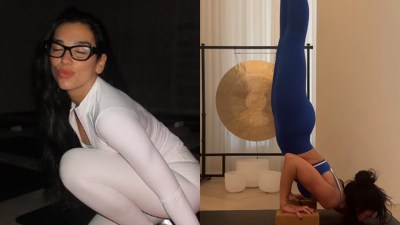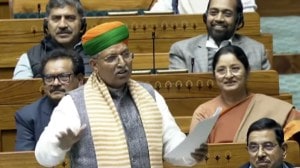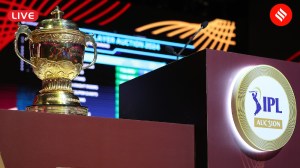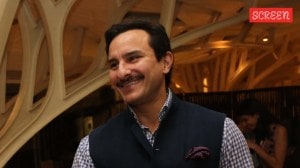Ballon d’Or: Why there is a controversy around football’s marquee honour
The Ballon d’Or is the most important individual award a footballer can win. This is not just because of the immense prestige that its almost-70-year history carries, but also because of the power and (indirect) cash rewards that it brings.
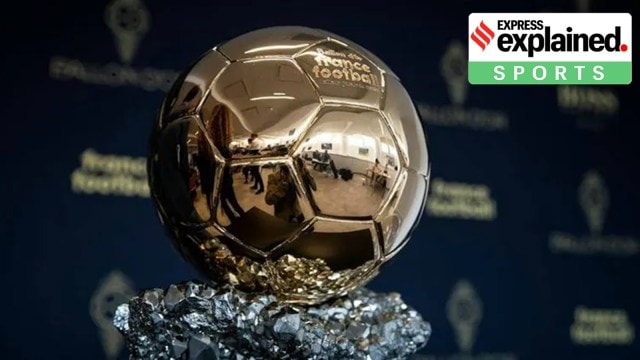 The significance of the award in a player’s career and in modern football is enormous.
The significance of the award in a player’s career and in modern football is enormous.Spain’s Rodri pipping Vinícius Jr of Brazil for the Ballon d’Or has been described as a “robbery” and the “biggest injustice in history”, which not only points to the emotions that the Beautiful Game invokes, but also the high regard in which this honour is held in the footballing world.
The Ballon d’Or is the most important individual award a footballer can win. This is not just because of the immense prestige that its almost-70-year history carries, but also because of the power and (indirect) cash rewards that it brings. The significance of the award in a player’s career and in modern football is enormous.
What is the controversy with the Ballon d’Or award this year?
The battle for this year’s Ballon d’Or — announced on October 29 — was between Vinícius Jr, the Real Madrid forward who was one of his club’s two best players in the 2023-24 season, and Rodri, the defensive midfielder who won the Premier League with Manchester City and clinched the European Championship with the Spanish national team.
Vinícius Jr and Real thought they had it in the bag. Both thought he was the best player in the team and the world — helping Real win the Champions League, the La Liga, and the UEFA Super Cup. English midfielder Jude Bellingham, who scored 23 goals in 42 games and was named the La Liga player of the year, would have to wait for his turn.
On the other hand, Rodri, City’s treble-winning (Premier League, FA Cup, Champions League trophies) defensive midfielder, was Man of the Match in the Champions League final who then won the European Championship with Spain.
As it happened, Rodri, a metronome passer with a penchant for coming up with big-time clutch goals, became the first defensive midfielder to win the award that has traditionally gone to flashy attacking midfielders and forwards. (A goalkeeper and a handful of defenders have been previous winners, though.)
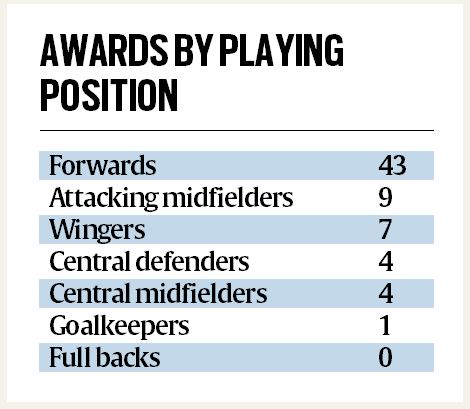
Vinícius believed he met the criteria. However, France Football-UEFA and the journalists who voted did not.
“If the award criteria doesn’t give it to Vinícius, then those same criteria should point to (Dani) Carvajal as the winner,” Real Madrid said in a statement. “As this was not the case, it is clear that the Ballon d’Or-UEFA does not respect Real Madrid. And Real Madrid does not go where it is not respected.”
Real Madrid, the most successful club in European football history, boycotted the award ceremony.
How does the voting for Ballon d’Or take place?
Earlier, a journalist from every country would vote for the top 10 players of the year in any order of their choosing, and the top-10 list would then be decided by the editors of France Football, the Paris-headquartered monthly publication that has presented the Ballon d’Or — literally Golden Ball — since 1956.
The number of voting journalists has now been whittled down to 100, from the top 100 countries in the world, according to FIFA rankings. For the women’s award, given this year to Aitana Bonmatí of Spain, the number of journalists has been cut to the top 50.
The process has seen changes over the years, but the award is given based largely on the opinion of journalists whom France Football has asked to base their judgment on: 1) individual performance in the previous season (not calendar year); 2) team success during the previous season; and 3) player behaviour and fair play during the season.
What is the problem with this system?
Journalists decide both the MVP (most valuable player) in basketball and the Ballon d’Or in football. Many top players in both sports have contracts where winning these awards is tied to significant financial bonuses.
Thus, while the recognition itself carries no cash reward, it is an award based on perception — and the power a club wields, as well as factors out of the players’ control, end up deciding the money they earn. The Spanish radio network Cadena SER had reported earlier that Vinícius Jr would have made a million dollars had he won the Ballon d’Or.
Journalists from different countries may have differing opinions on Vinícius’s struggle against racism, which has resulted in two convictions in Spanish courts. Their opinion on fair play and what constitutes “player behaviour” should not directly impact the financial rewards of a player, or even the award for being the best footballer of a season.
Is this the first time that the Ballon d’Or has run into controversy?
On the contrary, the award has never been short of controversies. The 1990s, an era when no single player was considered truly head and shoulders above his contemporaries, saw a slew of one-time Ballon d’Or winners — George Weah, Zinedine Zidane, Matthias Sammer, etc. The award was opened up for non-Europeans as late as in 1995 — and Weah remains the only African to win it.
The French superstar Thierry Henry never won the Ballon d’Or, a snub that has prompted him to question the validity of the award. “You can’t debate opinions. When journalists are involved in votes, they vote whatever they want,” he said on CBS Sports.
Between 2008 and 2023, the award was largely a two-man contest between Lionel Messi of Argentina and Cristiano Ronaldo of Portugal, who won it 13 times between themselves — there would be the occasional shout for someone like Franck Ribéry of France, but nobody else was considered in serious contention.
Robert Lewandowski of Poland and Erling Haaland of Norway would probably consider themselves unlucky to have lost the optics battle against Messi over the past few years. In a footballing world driven by star power, Messi and Ronaldo dominated. Now that both are nestled comfortably in football’s various vacation homes, the chatter around the Ballon d’Or has talking points around new players.
- 01
- 02
- 03
- 04
- 05


